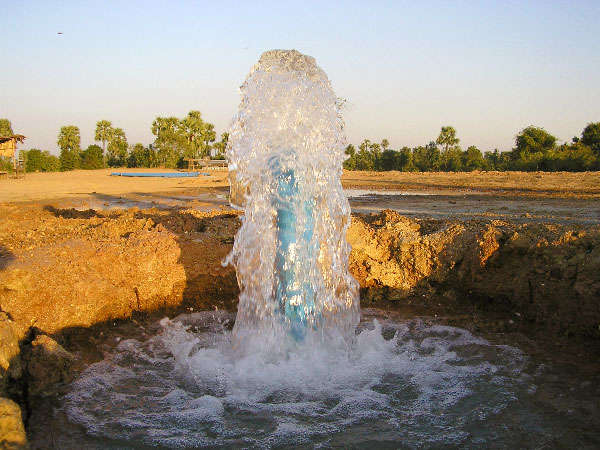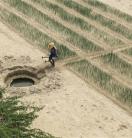Under pressure – Sustainable groundwater in Myanmar

Restoring artesian groundwater pressure in Myanmar’s Central Dry Zone (CDZ) and developing strategies for its sustainable use is the focus of a new ACIAR-funded project.
ACIAR has commissioned the International Water Management Institute (IWMI) to lead the three-year project that will engage with rural communities and tube well owners to move to sustainable and equitable management of the artesian water resource.
Rural communities that have access to artesian water in the Pale sub-basin in the CDZ have seen dramatic drops in water pressure and flow rates in recent years, with the financial burden of buying pumping equipment beyond many smallholder farmers who depend on the resource for drinking water and crop irrigation.
ACIAR’s Social Science Research Program Manager, Dr Jayne Curnow, says the project will not only reduce poverty within the region but also prevent it from happening in the first place.
‘It’s really fixing the problem before it happens,’ says Dr Curnow. ‘The financial outlay required to buy irrigation pumps is beyond many of the affected communities. If we can act now and better manage how this vital resource is used, it will have profound benefits for smallholder farmers living in an already challenging region. It will keep many from falling further into poverty.’
Home to more than 10 million people, the CDZ is the most water-stressed and food insecure region of Myanmar, with 43 per cent of households living below the poverty line. The region’s annual rainfall has halved since the 1950s and droughts are stretching for longer periods placing further demand on groundwater.
‘The re-pressurisation of the basin will require the capping of tube wells used for both domestic and productive agriculture uses,’ says Dr Curnow. ‘While the technical knowledge already exists, engaging with communities on a large scale and understanding how best to convince farmers to cap wells will be the most vital part of affecting change.’
‘The project will first research the current knowledge of the artesian system in farming communities,’ says Dr Curnow. ‘From there, the project team will develop innovative ways to communicate with farming communities about making sustainable and equitable changes required to maintain pressure in the system and sustainably manage the water resource.’
IWMI will work in close partnership with Myanmar’s Irrigation and Water Utilization Management Department and other partners to develop broader groundwater management policy and regulatory frameworks in Myanmar. These will include a new national groundwater law and assistance in the emerging national integrated water management strategy.
Australian groundwater expert Dr Len Drury from Aqua Rock Konsultants is also involved with the project having spent 35 years mapping Myanmar’s groundwater. Dr Drury recently published Hydrology of the Dry Zone – Central Myanmar with support from The Australian Water Partnership.
The project is scheduled to run until the end of 2022.



